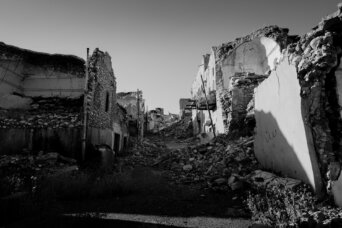- About
- Topics
- Picks
- Audio
- Story
- In-Depth
- Opinion
- News
- Donate
- Signup for our newsletterOur Editors' Best Picks.Send
Read, Debate: Engage.
| topic: | Peace and Reconciliation |
|---|---|
| located: | Niger |
| editor: | Bob Koigi |
Since the start of the year, terror groups linked to ISIS and al-Qaeda have killed over 420 civilians and displaced tens of thousands more in Western Niger in what remains one of the deadliest terror attacks in the Sahel region.
The attacks on Western Niger are just one instance in a series of systemic attacks conducted by the extremist groups which, since 2019, have been destroying churches and schools, pillaging, burning properties and imposing religious restrictions that align with their interpretations of Islam.
In a recent report based on witnesses’ accounts, Human Rights Watch has detailed how civilians have faced the wrath of the terror groups in expedited executions at funerals, wells, public transport and on their own farms. Among those killed, the report notes, include children, village chiefs, imams and people with disabilities.
But as the terror groups penetrate Niger, and by extension the Sahel, the question of human rights abuses by multiple parties has constantly emerged. In 2019 and 2020, Human Rights Watch sounded the alarm over increased cases of civilian abuses by Niger’s security forces, calling for investigations into 150 civilian deaths and forced disappearances at the height of counter terrorism operations. The country’s Human Rights Commission recorded 71 bodies in common graves after investigating the enforced disappearance of over 100 people.
As Niger’s government intensifies its crackdown on militant groups, it should be reminded of it’s allegiance to peace treaties and customary laws of war - among them the Geneva Convention, which prohibits attacks on civilians and their property. It has a legal obligation to Niger’s citizens, and to the laws that protect them, that ensure investigations into atrocities and that calls for due justice against all perpetrators.
Photo by Levi Meir Clancy

